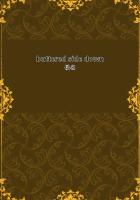That is what the Fathers taught that the saints were ever doing,--praying to God for us, and to the Virgin and Jesus. It is not possible, you see, that they could have been praying for us, and yet such things have happened, as happened in Temecula. I do not know how it is my people have displeased them."
"I think Father Salvierderra would say that it is a sin to be afraid of the saints, Alessandro," replied Ramona, earnestly. "He has often told me that it was a sin to be unhappy; and that withheld me many times from being wretched because the Senora would not love me.
And, Alessandro," she went on, growing more and more fervent in tone, "even if nothing but misfortune comes to people, that does not prove that the saints do not love them; for when the saints were on earth themselves, look what they suffered: martyrs they were, almost all of them. Look at what holy Saint Catharine endured, and the blessed Saint Agnes. It is not by what happens to us here in this world that we can tell if the saints love us, or if we will see the Blessed Virgin."
"How can we tell, then?" he asked.
"By what we feel in our hearts, Alessandro," she replied; "just as I knew all the time, when you did not come,-- I knew that you loved me. I knew that in my heart; and I shall always know it, no matter what happens. If you are dead, I shall know that you love me. And you,-- you will know that I love you, the same."
"Yes," said Alessandro, reflectively, "that is true. But, Majella, it is not possible to have the same thoughts about a saint as about a person that one has seen, and heard the voice, and touched the hand."
"No, not quite," said Ramona; "not quite, about a saint; but one can for the Blessed Virgin, Alessandro! I am sure of that. Her statue, in my room at the Senora's, has been always my mother. Ever since I was little I have told her all I did. It was she helped me to plan what I should bring away with us. She reminded me of many things I had forgotten, except for her."
"Did you hear her speak?" said Alessandro, awe-stricken.
"Not exactly in words; but just the same as in words," replied Ramona, confidently. "You see when you sleep in the room with her, it is very different from what it is if you only see her in a chapel. Oh, I could never be very unhappy with her in my room!"
"I would almost go and steal it for you, Majella," cried Alessandro, with sacrilegious warmth.
"Holy Virgin!" cried Ramona, "never speak such a word. You would be struck dead if you laid your hand on her! I fear even the thought was a sin,"
"There was a small figure of her in the wall of our house," said Alessandro. "It was from San Luis Rey. I do not know what became of it,-- if it were left behind, or if they took it with my father's things to Pachanga. I did not see it there. When I go again, I will look."
"Again!" cried Ramona. "What say you? You go again to Pachanga? You will not leave me, Alessandro?"
At the bare mention of Alessandro's leaving her, Ramona's courage always vanished. In a moment, in the twinkling of an eye, she was transformed from the dauntless, confident, sunny woman, who bore him up as it were on wings of hope and faith, to a timid, shrinking, despondent child, crying out in alarm, and clinging to the hand.
"After a time, dear Majella, when you are wonted to the place, I must go, to fetch the wagon and the few things that were ours.
There is the raw-hide bed which was Father Peyri's, and he gave to my father. Majella will like to lie on that. My father believed it had great virtue."
"Like that you made for Felipe?" she asked.
"Yes; but it is not so large. In those days the cattle were not so large as they are now: this is not so broad as Senor Felipe's. There are chairs, too, from the Mission, three of them, one almost as fine as those on your veranda at home. They were given to my father.
And music-books,-- beautiful parchment books! Oh, I hope those are not lost, Majella! If Jose had lived, he would have looked after it all. But in the confusion, all the things belonging to the village were thrown into wagons together, and no one knew where anything was. But all the people knew my father's chairs and the books of the music. If the Americans did not steal them, everything will be safe. My people do not steal. There was never but one thief in our village, and my father had him so whipped, he ran away and never came back. I heard he was living in San Jacinto, and was a thief yet, spite of all that whipping he had. I think if it is in the blood to be a thief, not even whipping will take it out, Majella,"
"Like the Americans," she said, half laughing, but with tears in the voice. "Whipping would not cure them."
It wanted yet more than an hour of dawn when they reached the crest of the hill from which they looked down on the San Pasquale valley. Two such crests and valleys they had passed; this was the broadest of the three valleys, and the hills walling it were softer and rounder of contour than any they had yet seen. To the east and northeast lay ranges of high mountains, their tops lost in the clouds. The whole sky was overcast and gray.
"If it were spring, this would mean rain," said Alessandro; "but it cannot rain, I think, now."
"No!" laughed Ramona, "not till we get our house done. Will it be of adobe, Alessandro?"
"Dearest Majella, not yet! At first it must be of the tule. They are very comfortable while it is warm, and before winter I will build one of adobe."
'Two houses! Wasteful Alessandro! If the tule house is good, I shall not let you, Alessandro, build another."
Ramona's mirthful moments bewildered Alessandro. To his slower temperament and saddened nature they seemed preternatural; as if she were all of a sudden changed into a bird, or some gay creature outside the pale of human life,-- outside and above it.
"You speak as the birds sing, my Majella," he said slowly. "It was well to name you Majel; only the wood-dove has not joy in her voice, as you have. She says only that she loves and waits."
"I say that, too, Alessandro!" replied Ramona, reaching out both her arms towards him.















